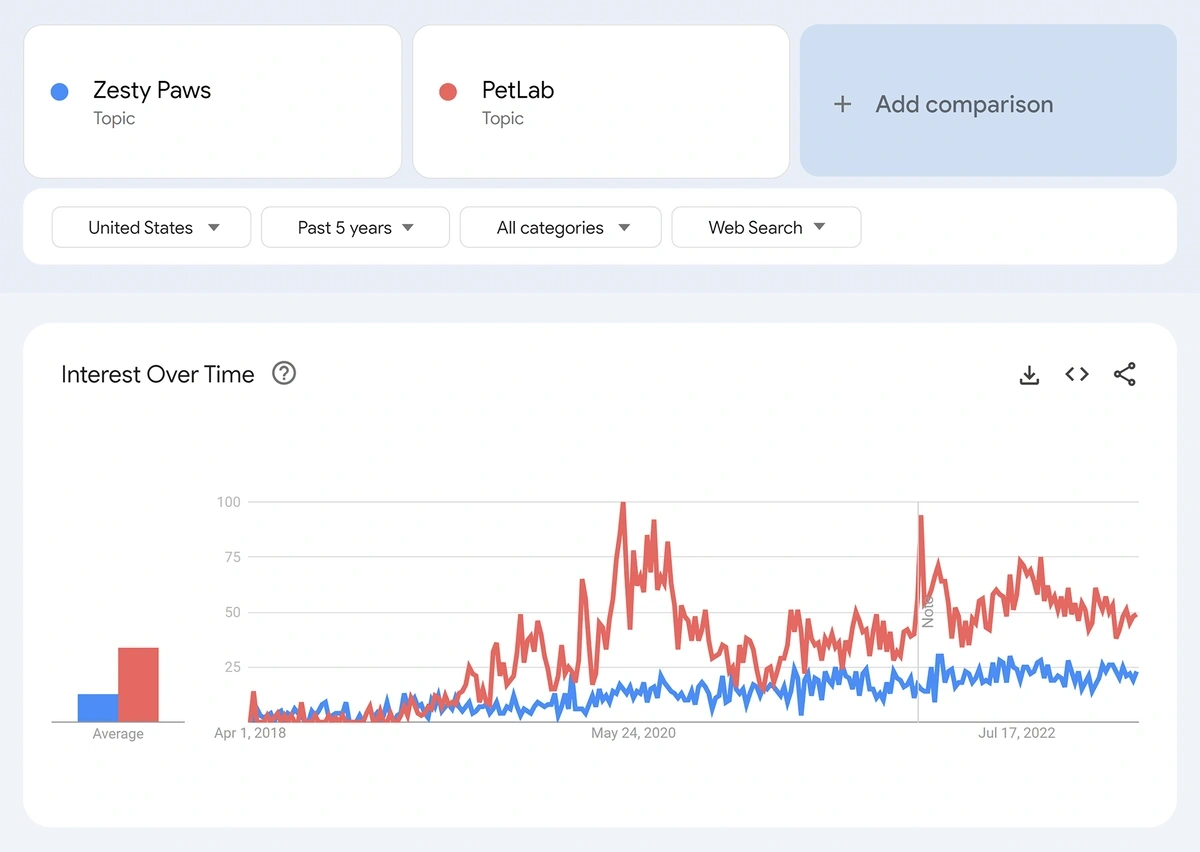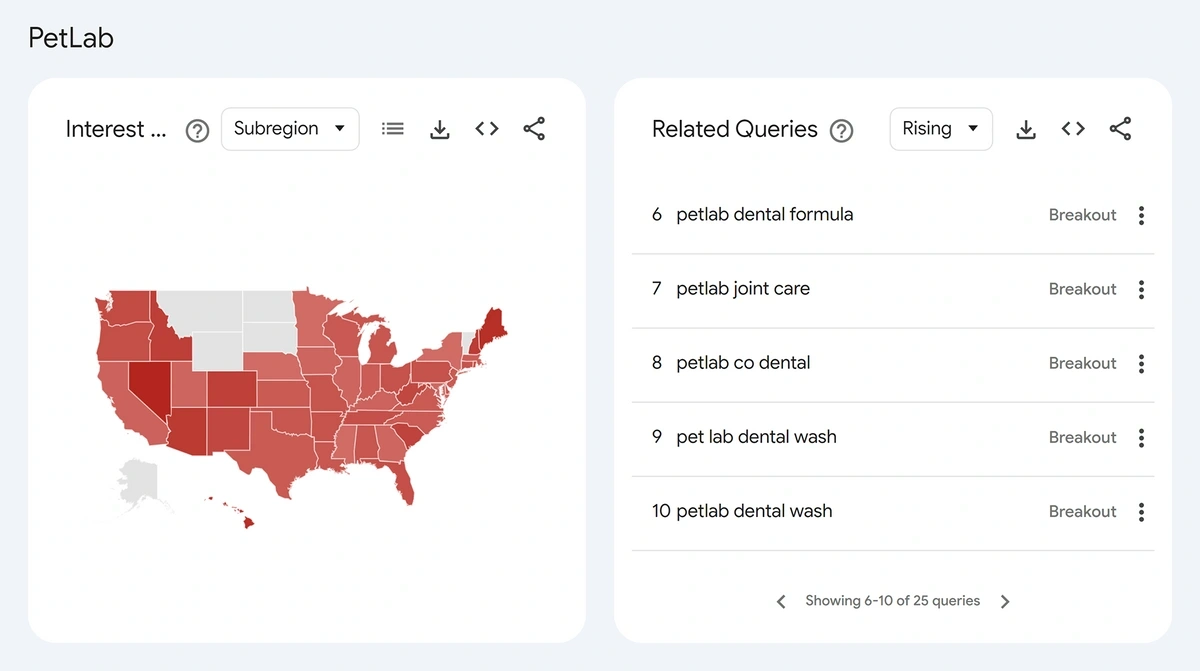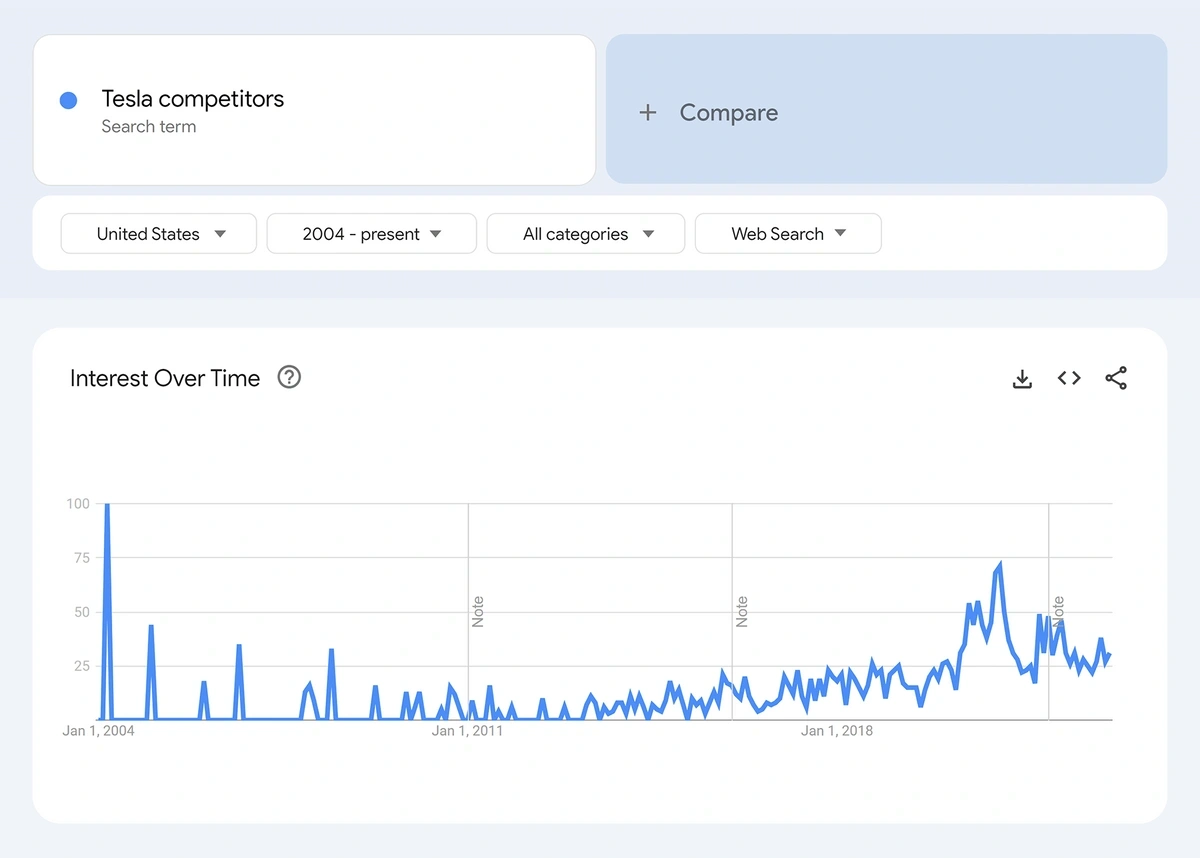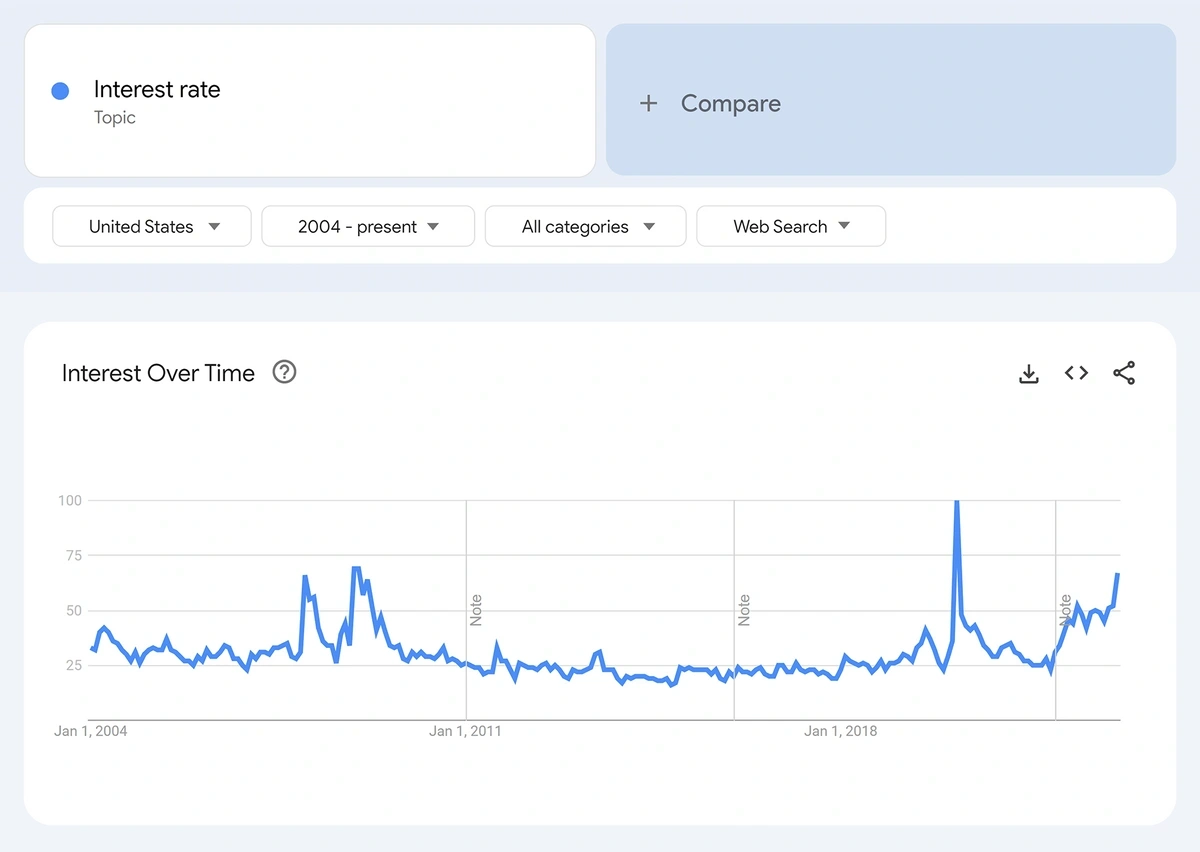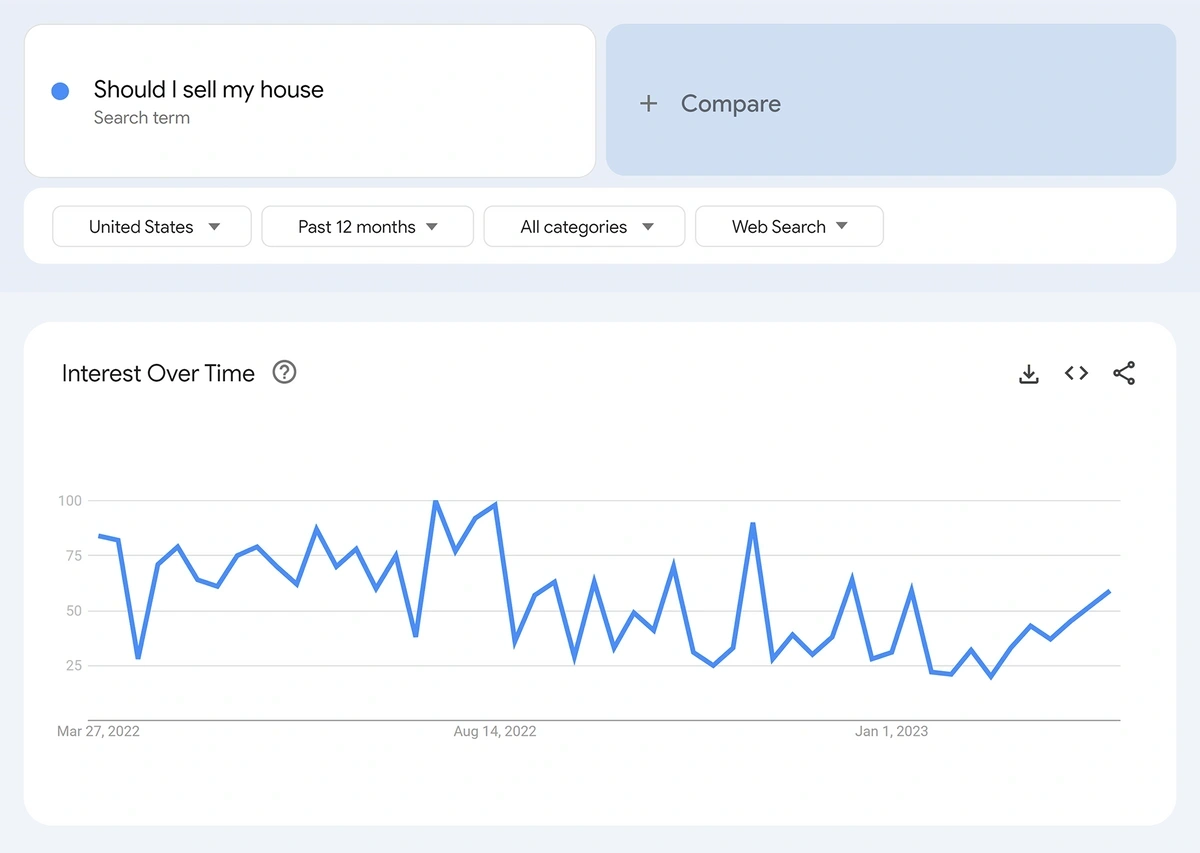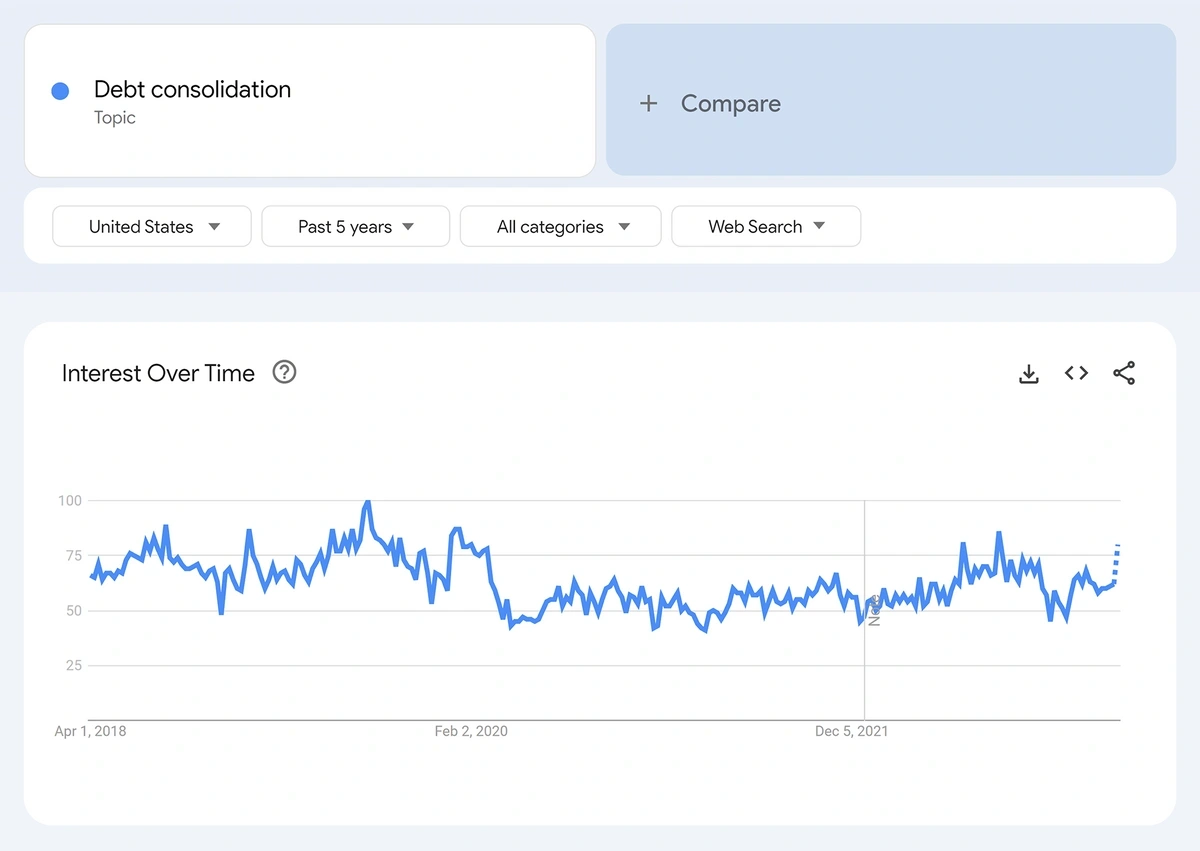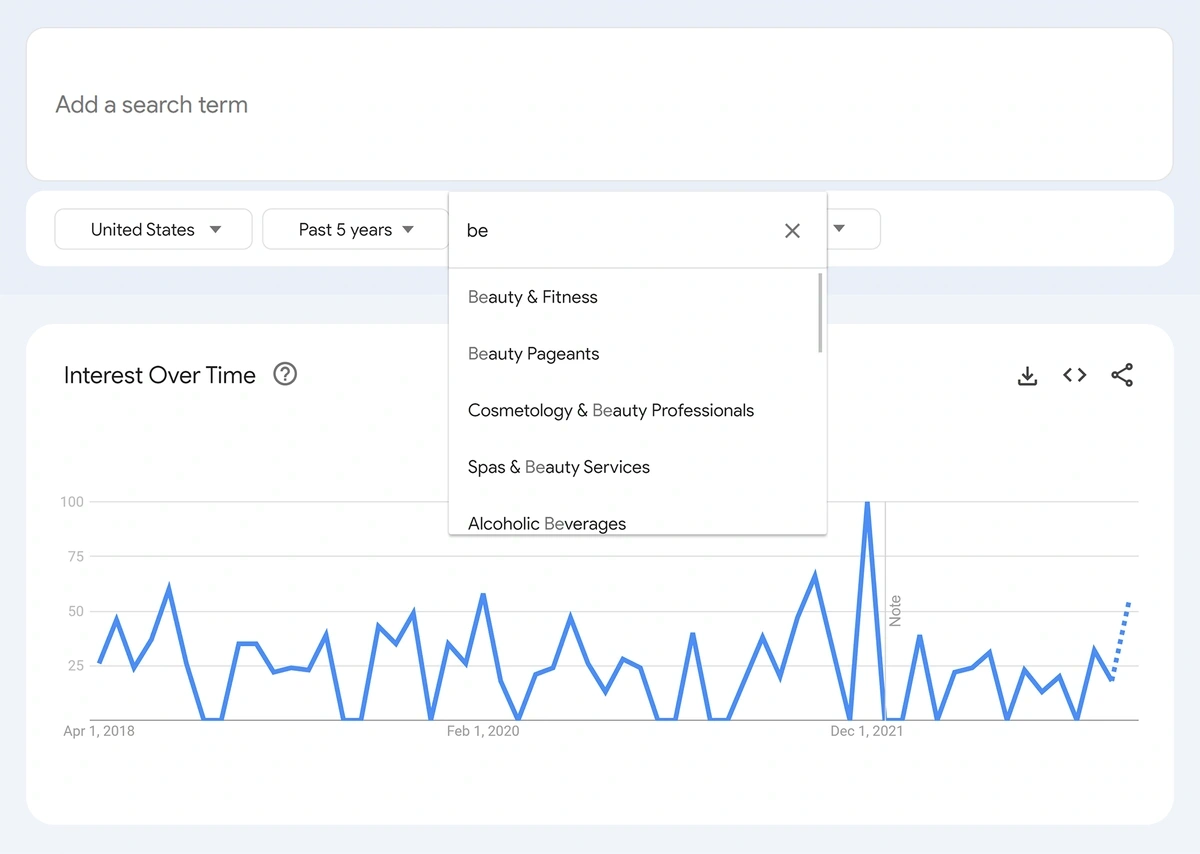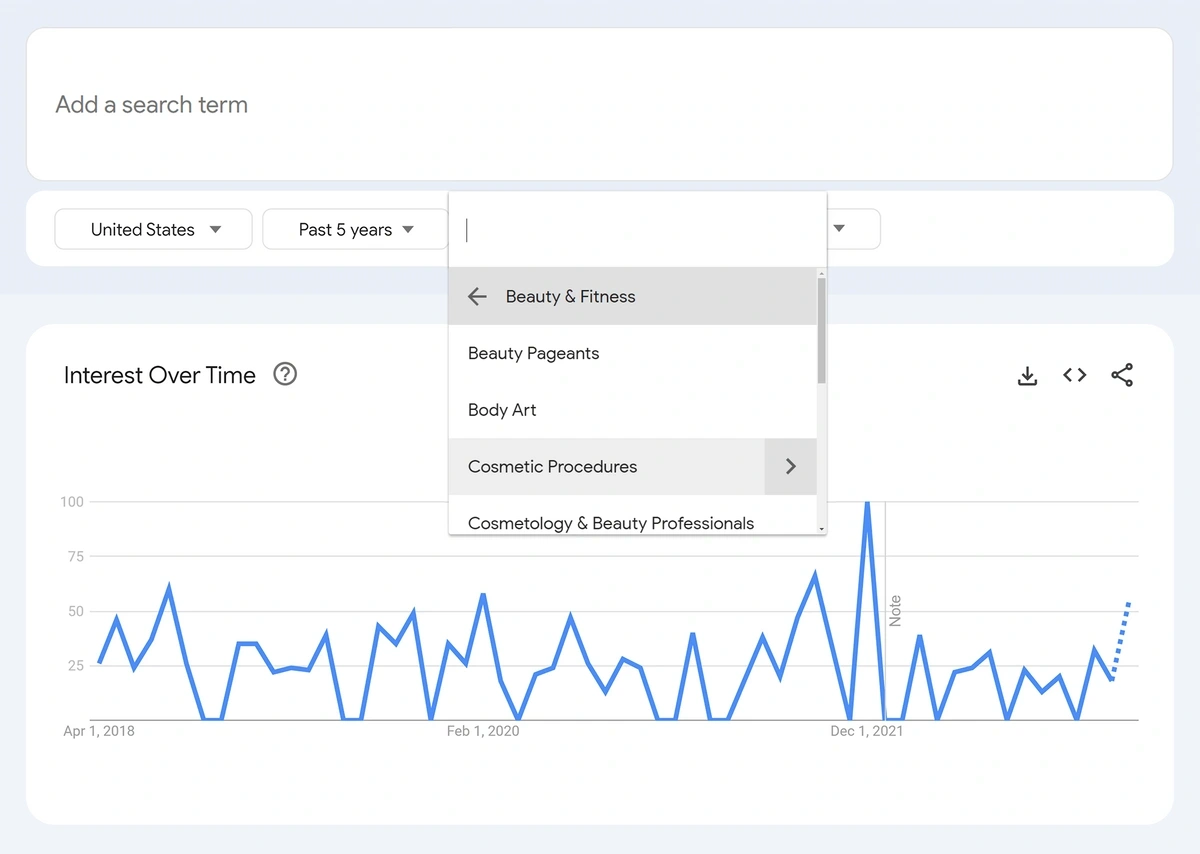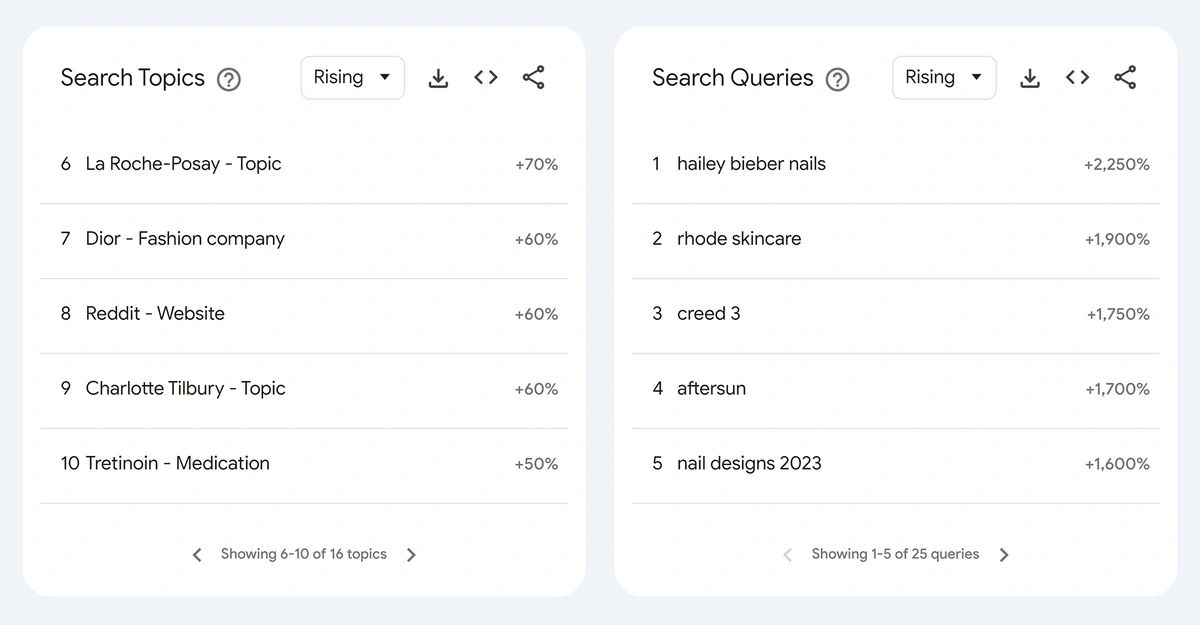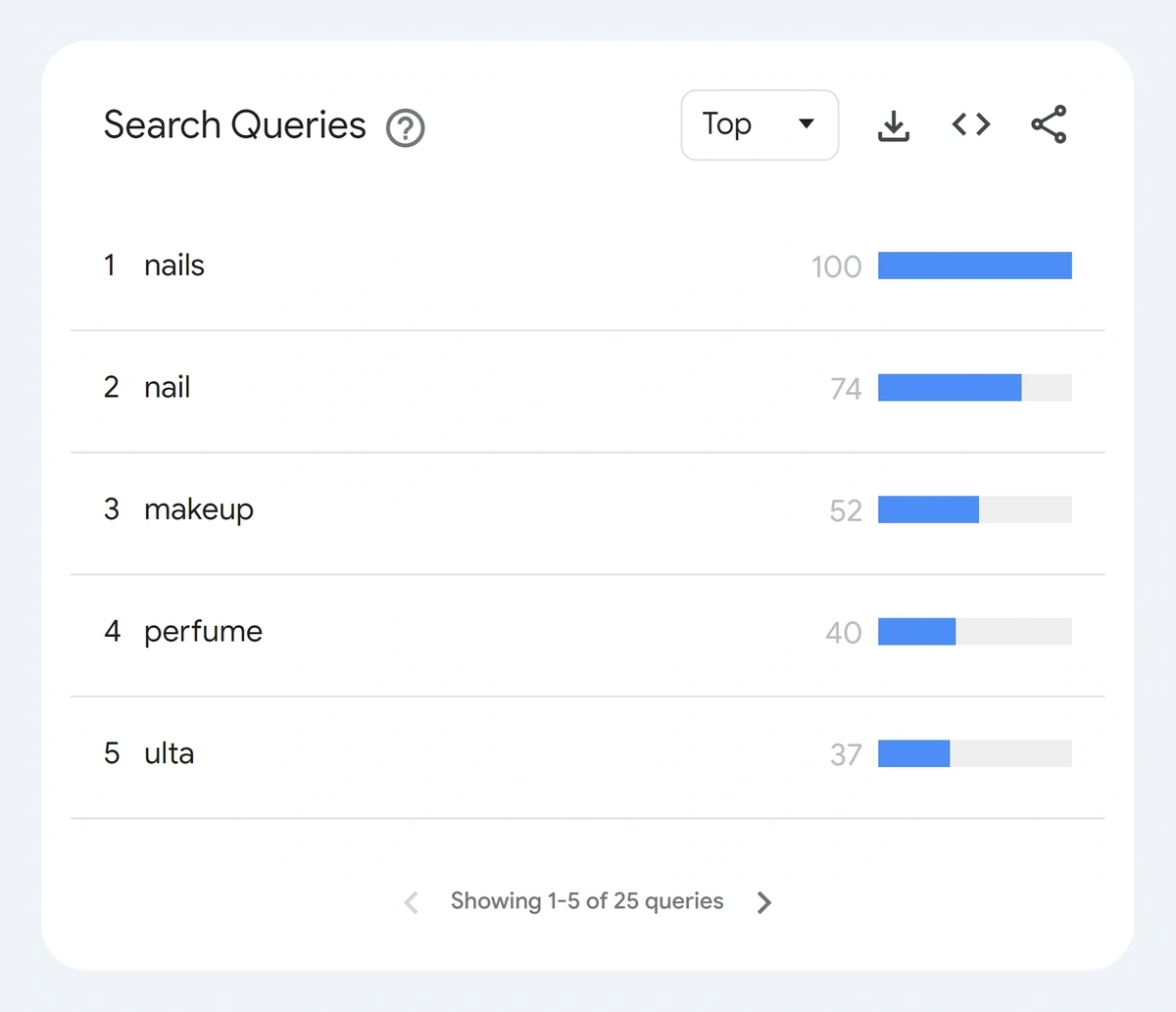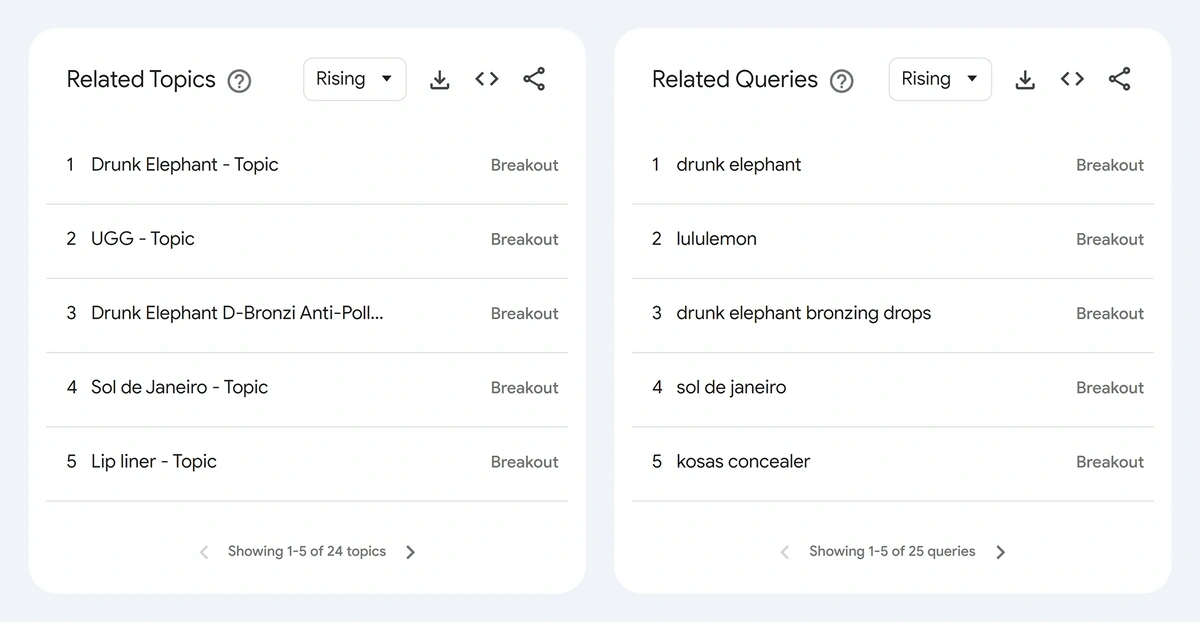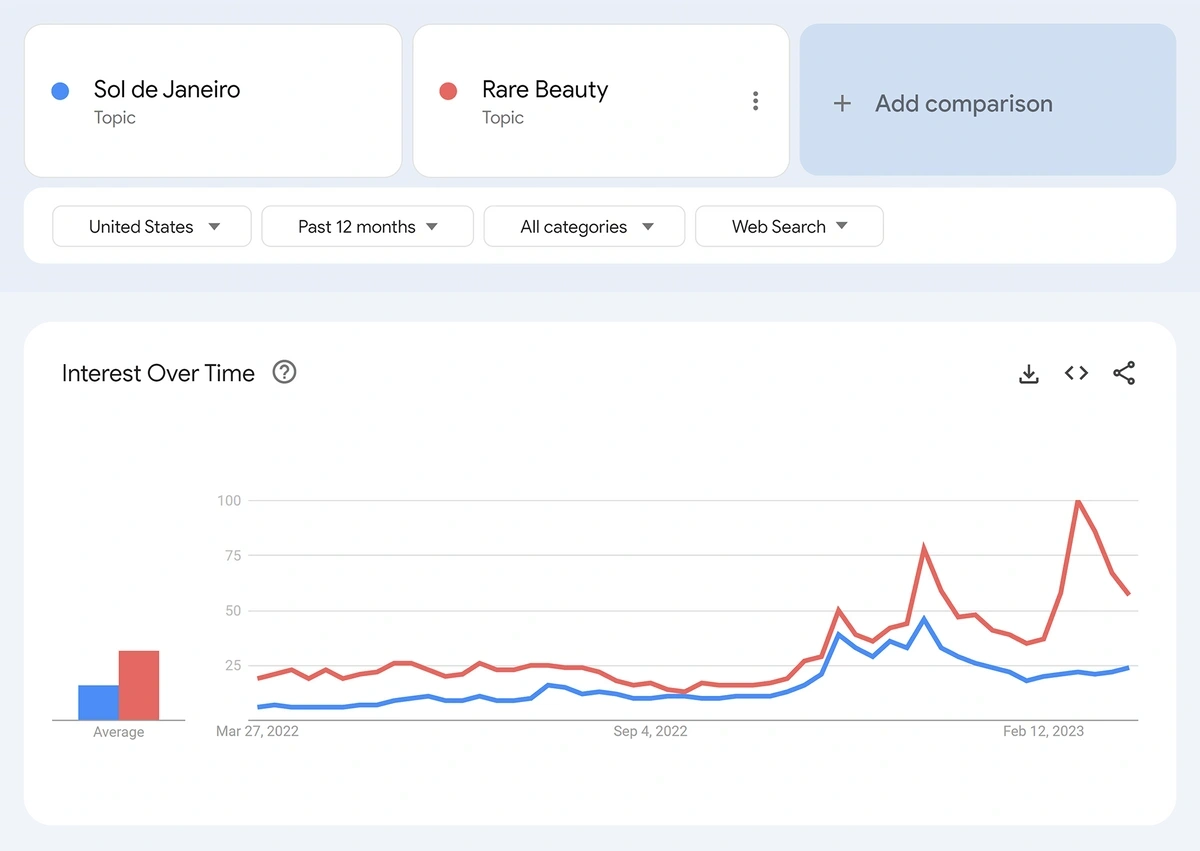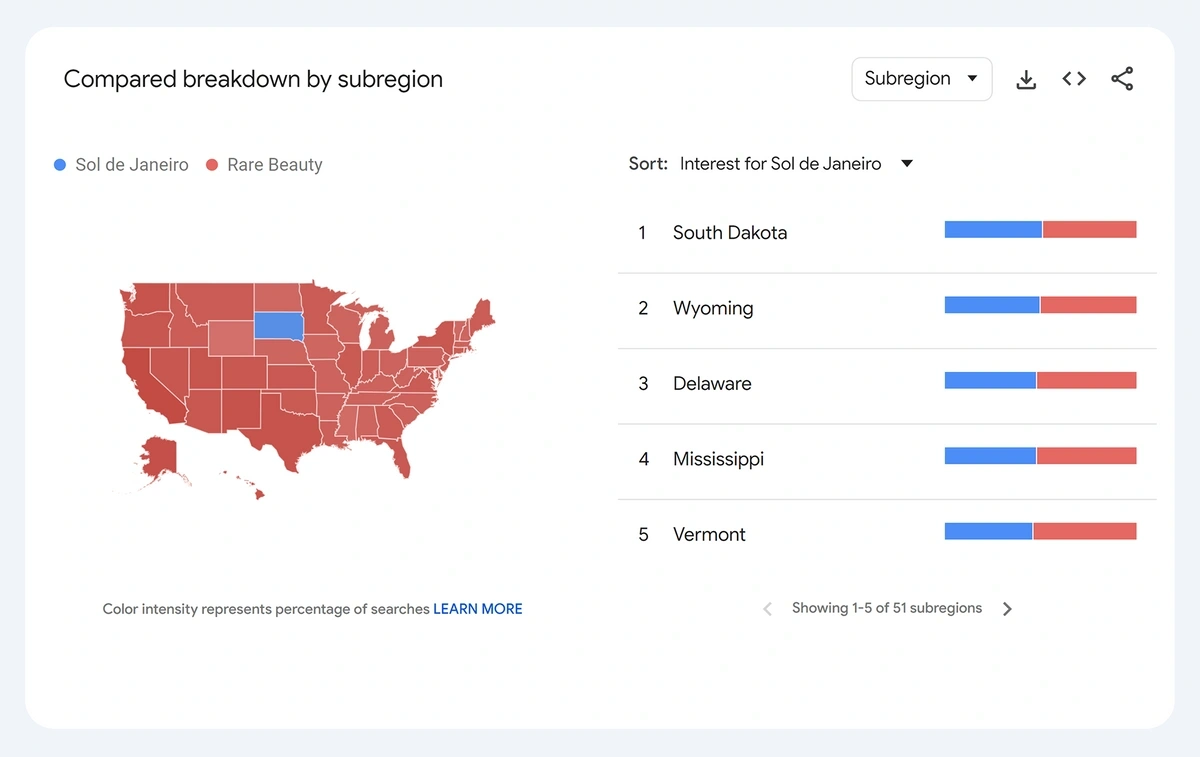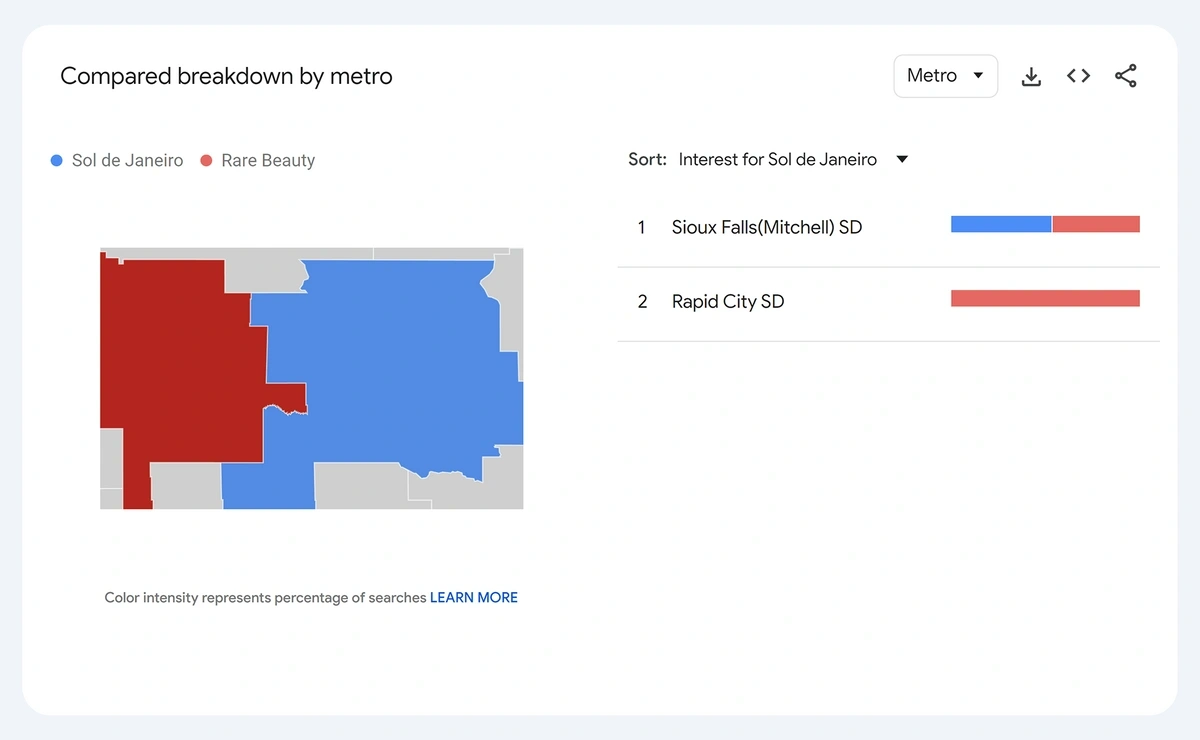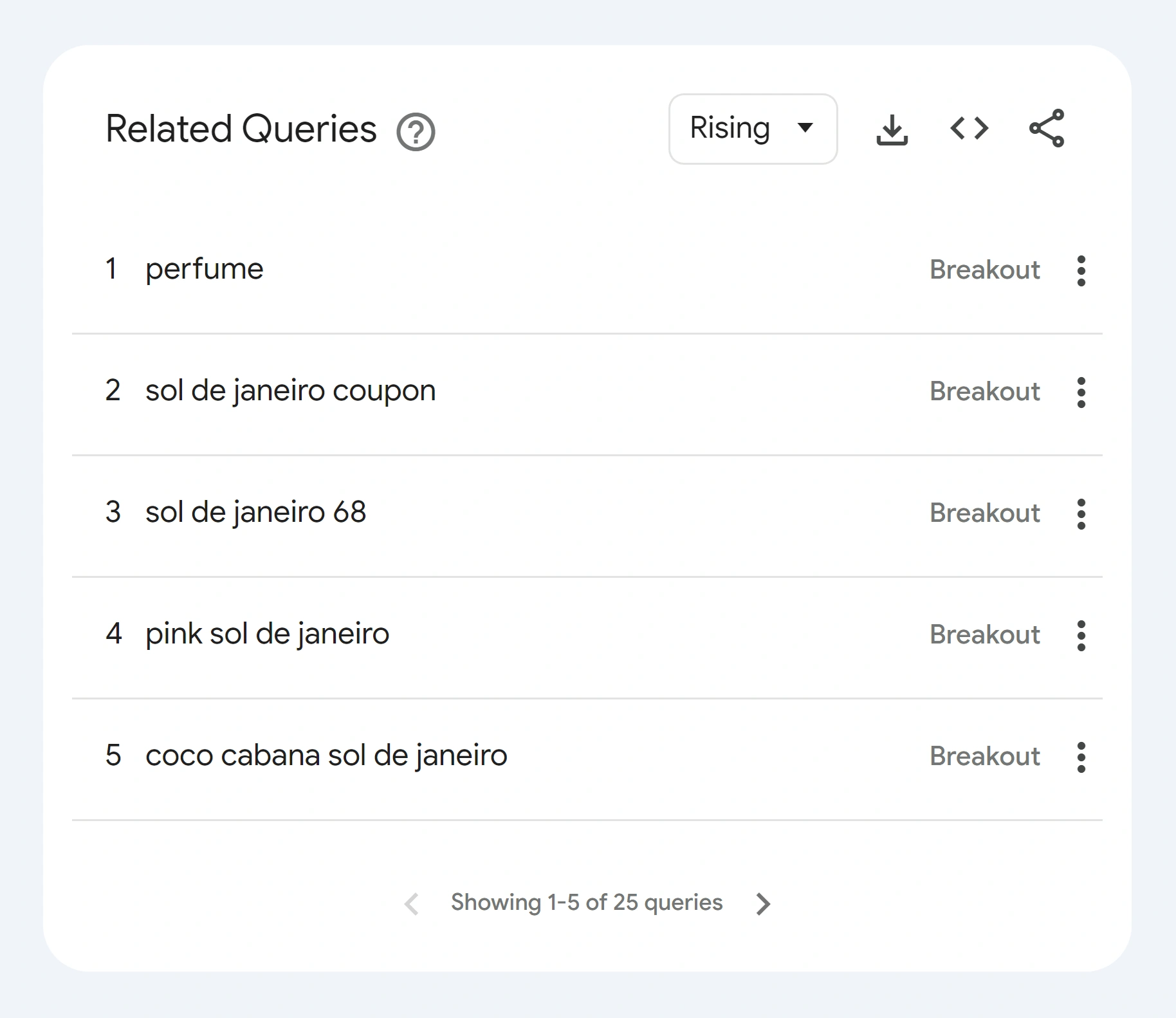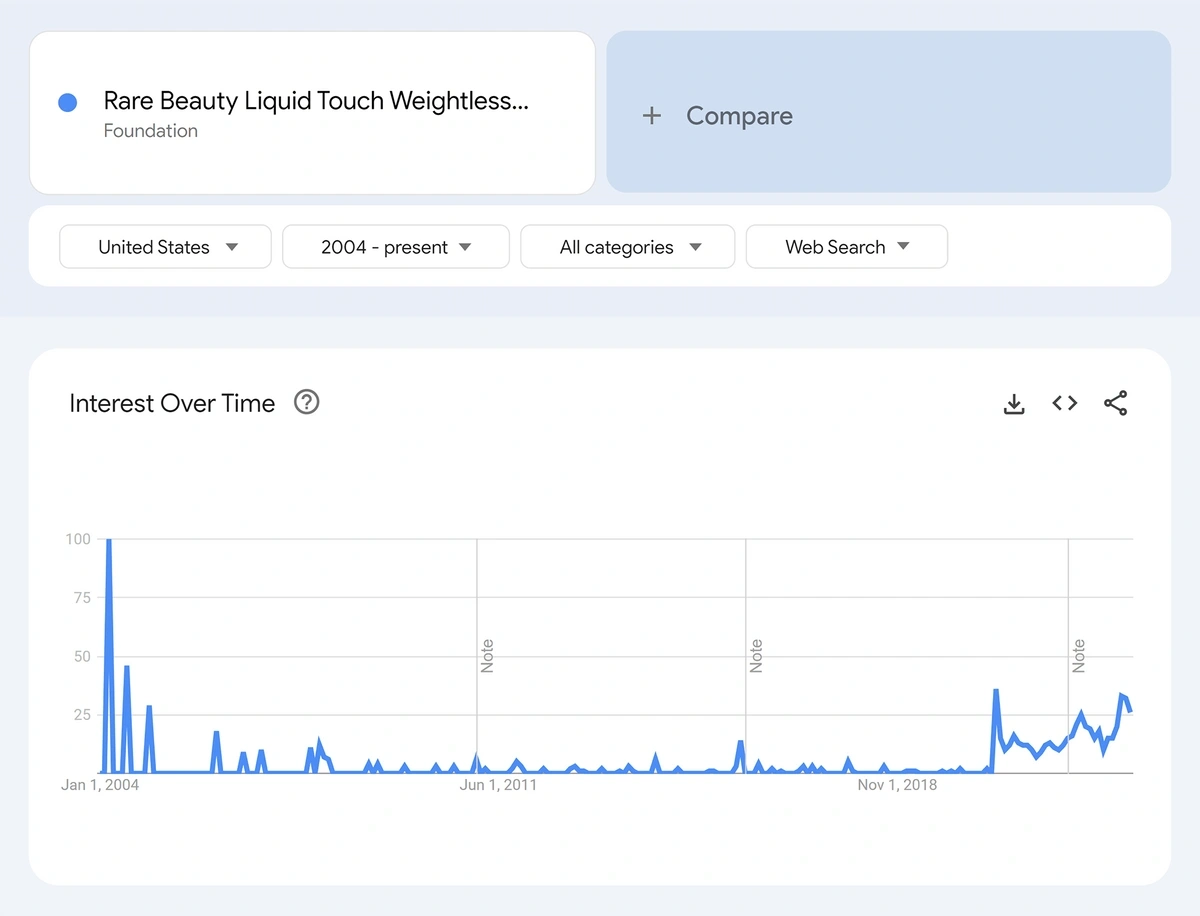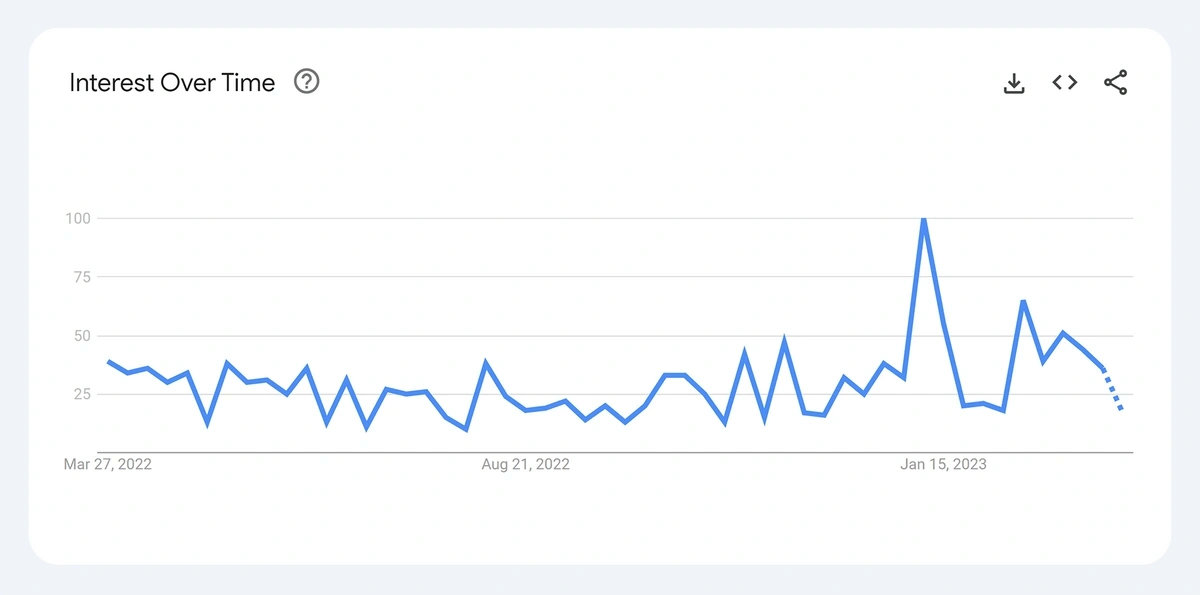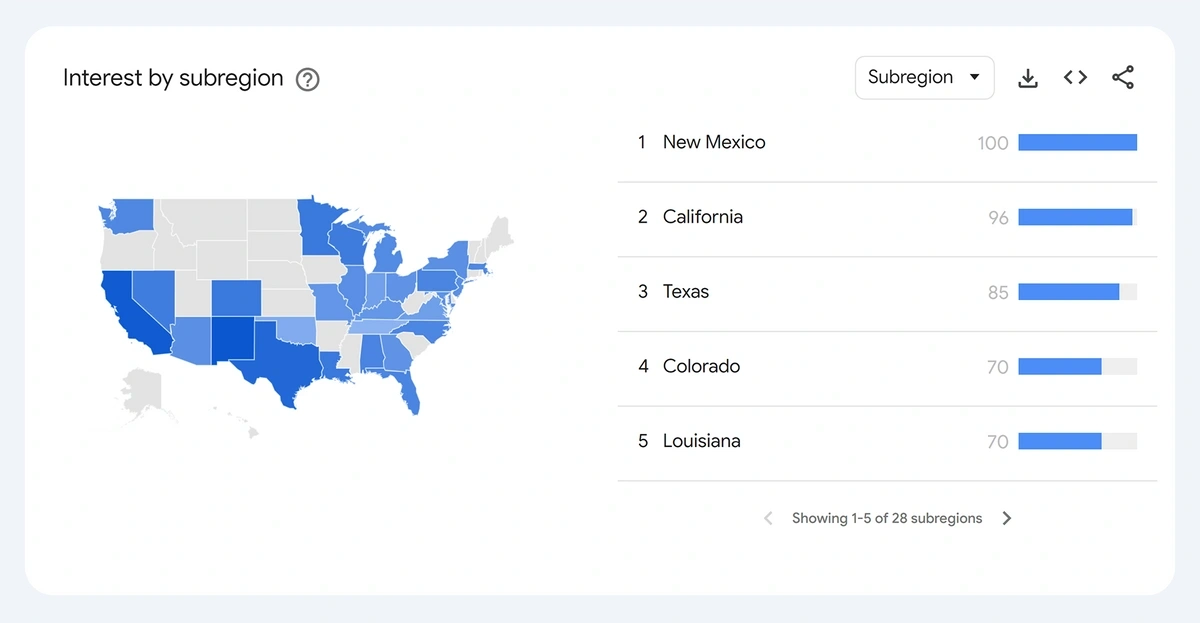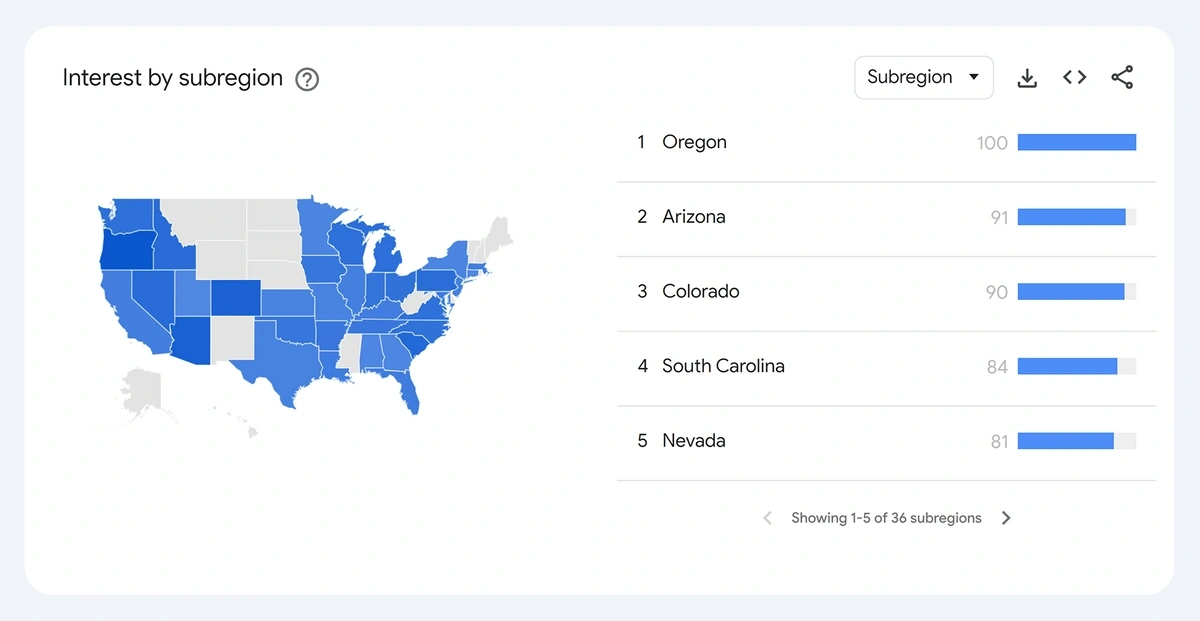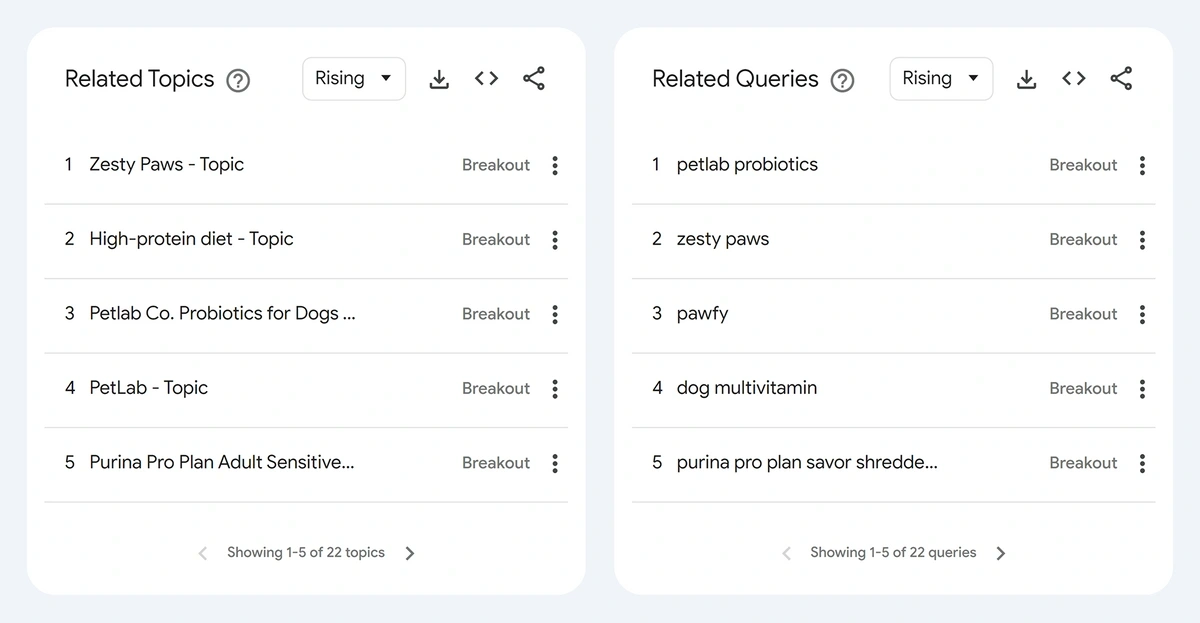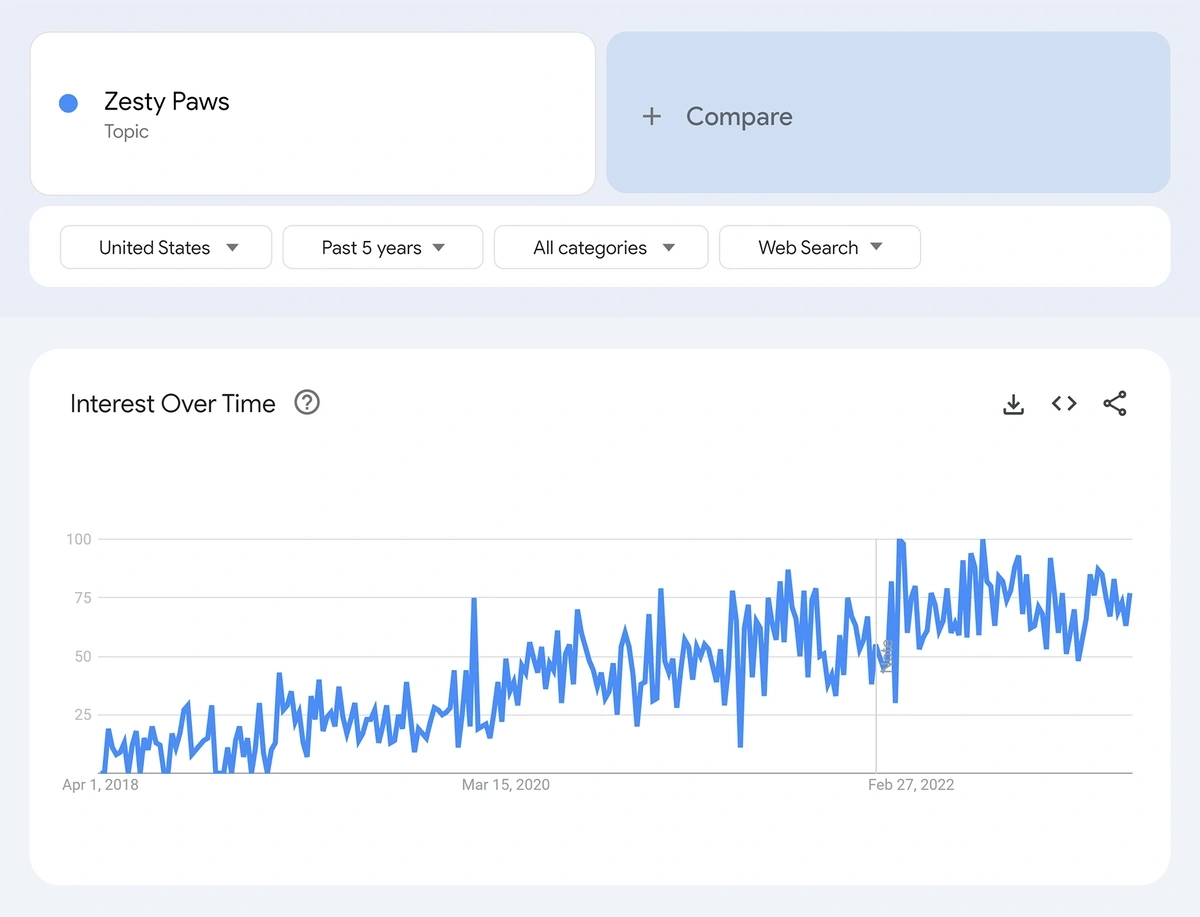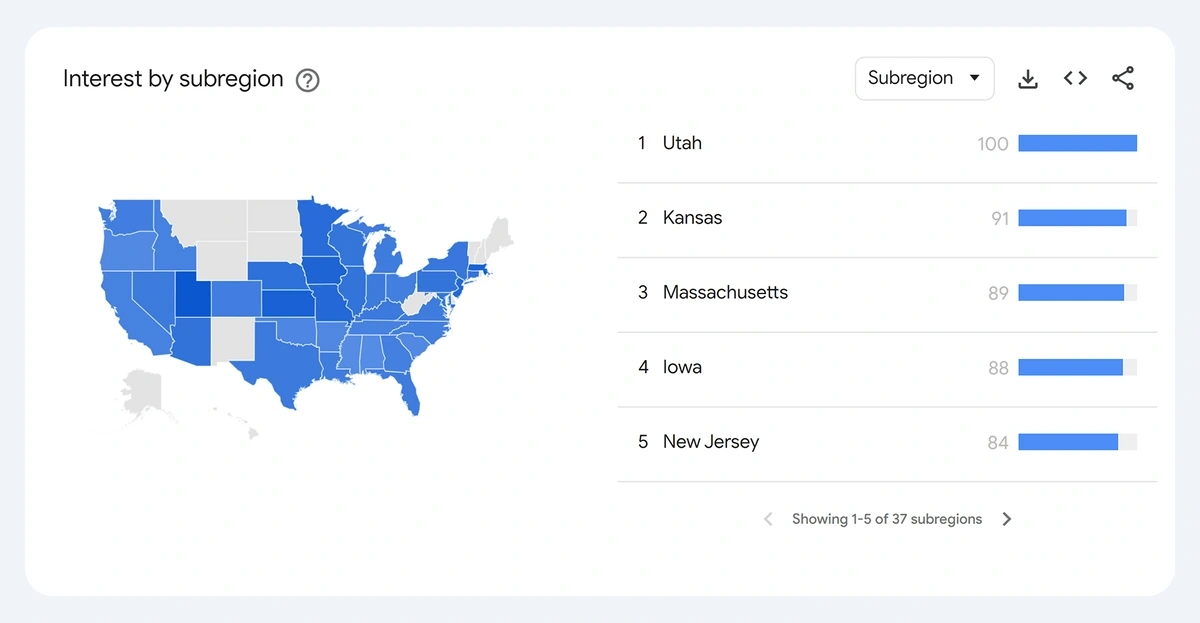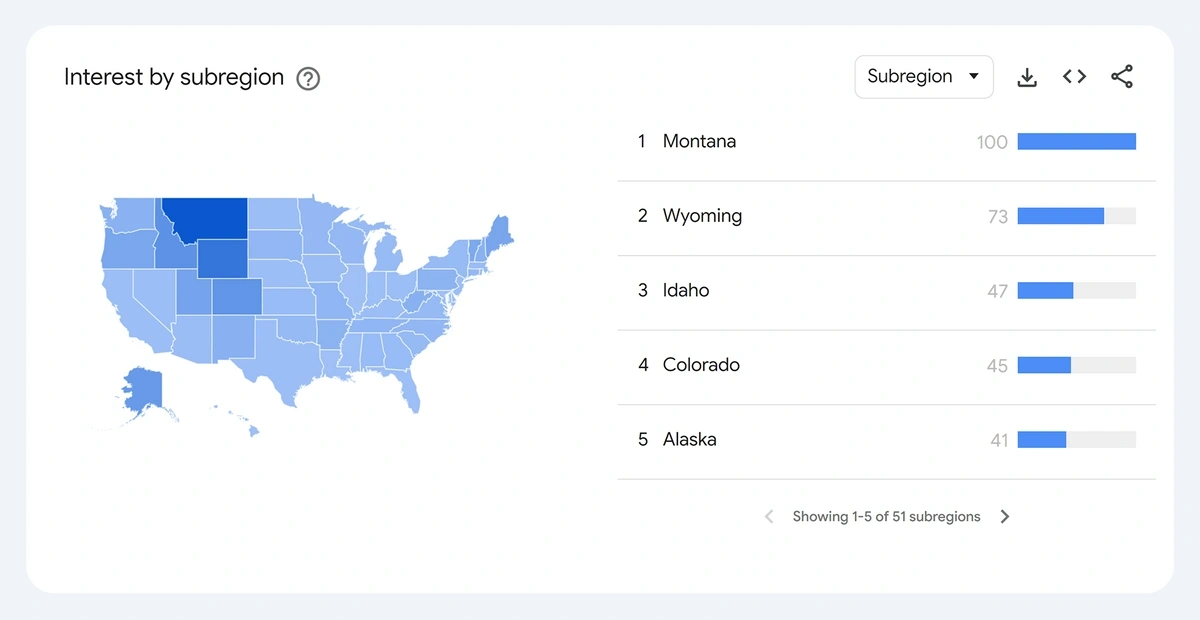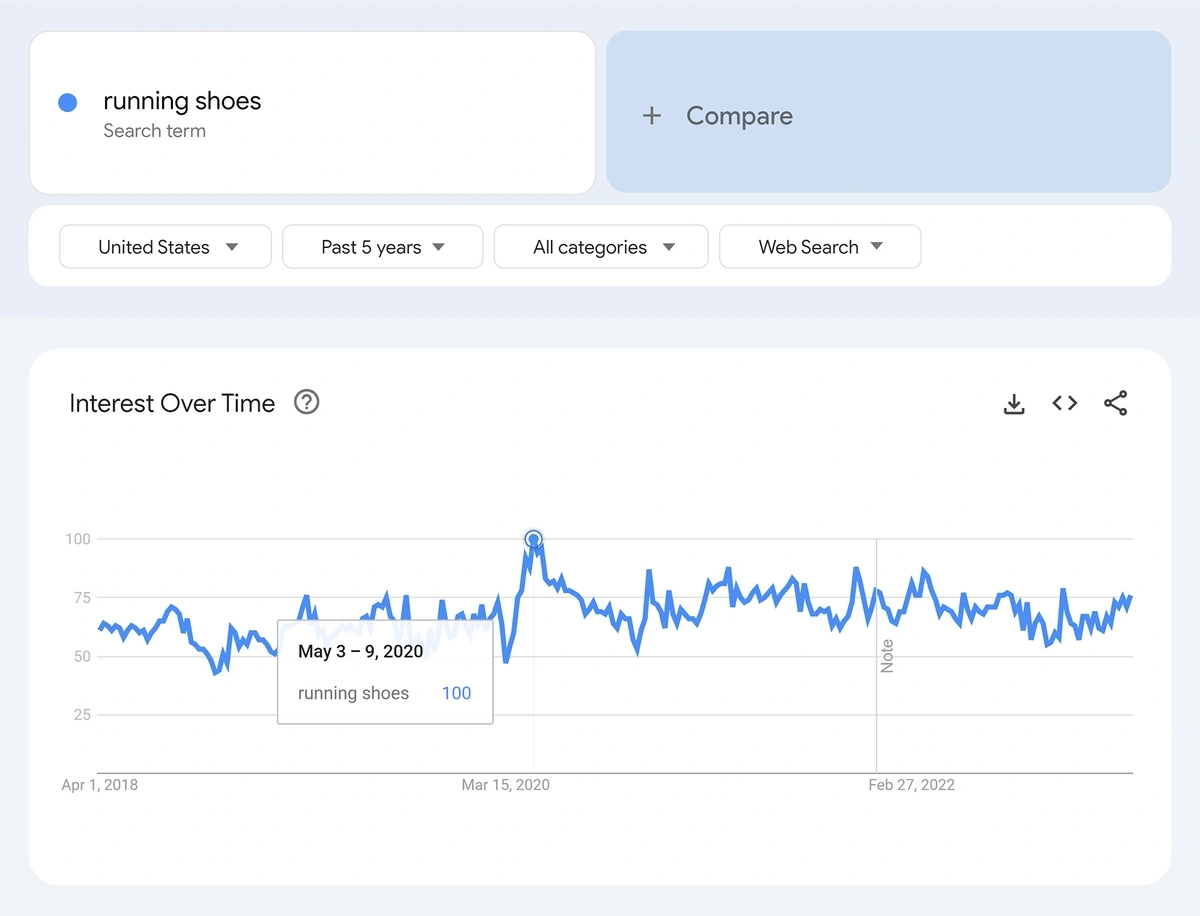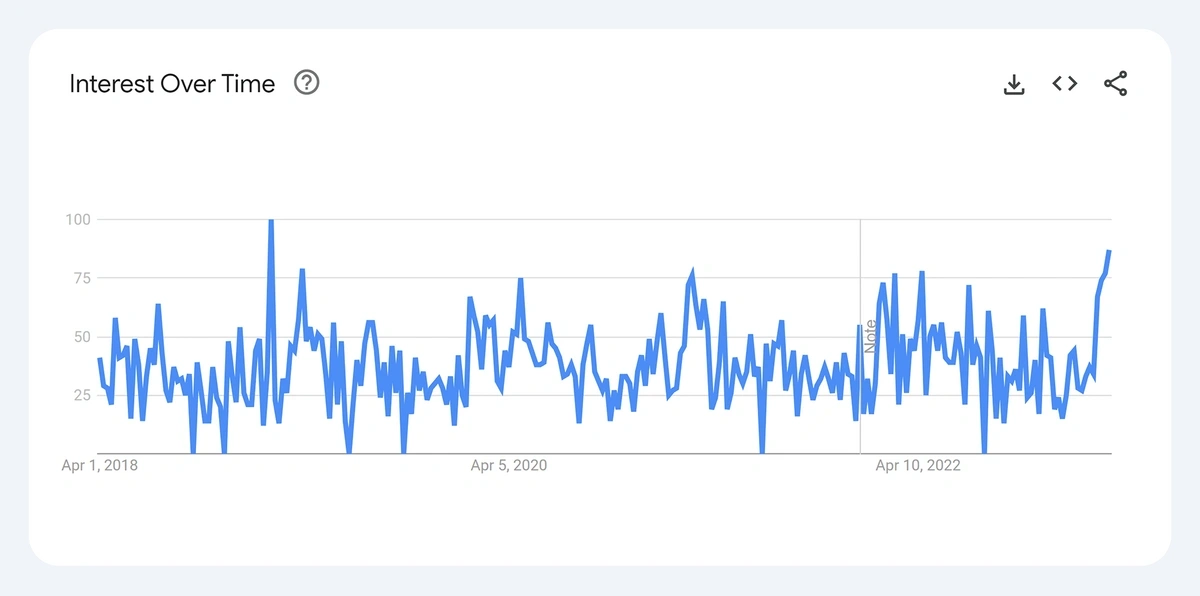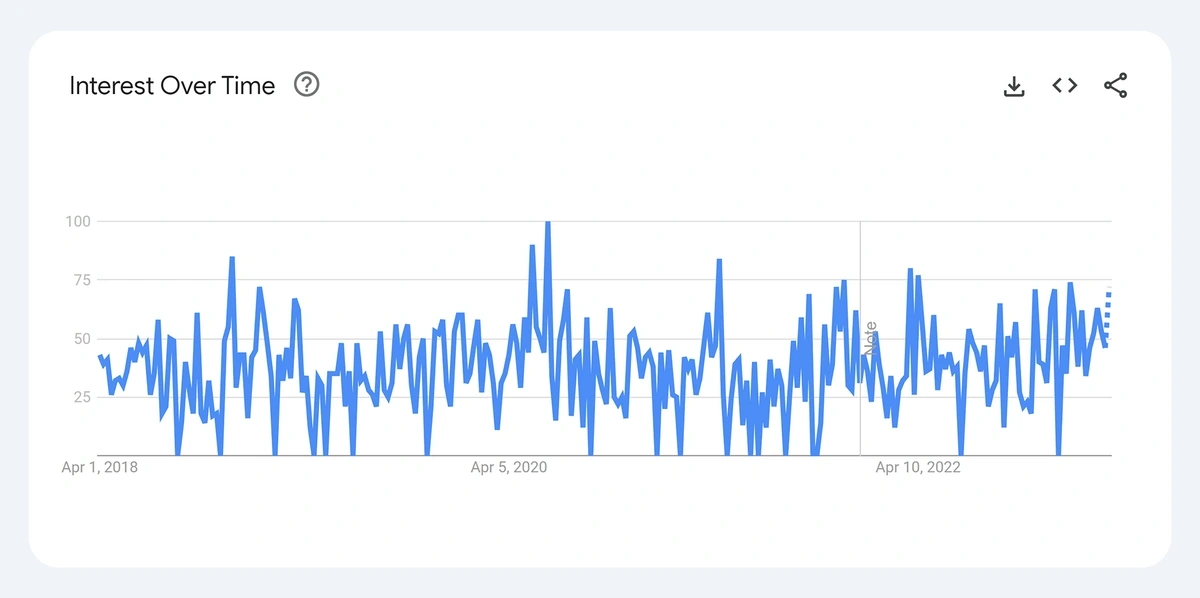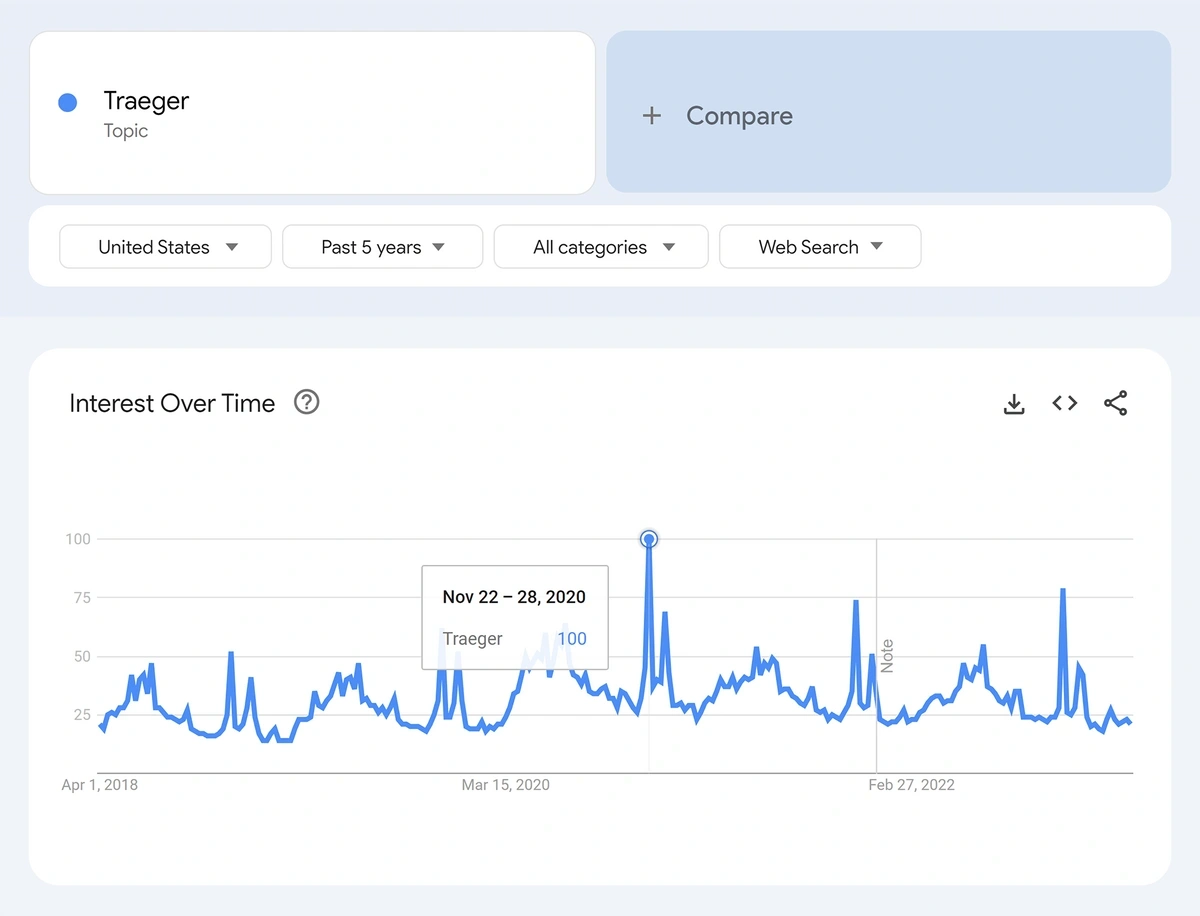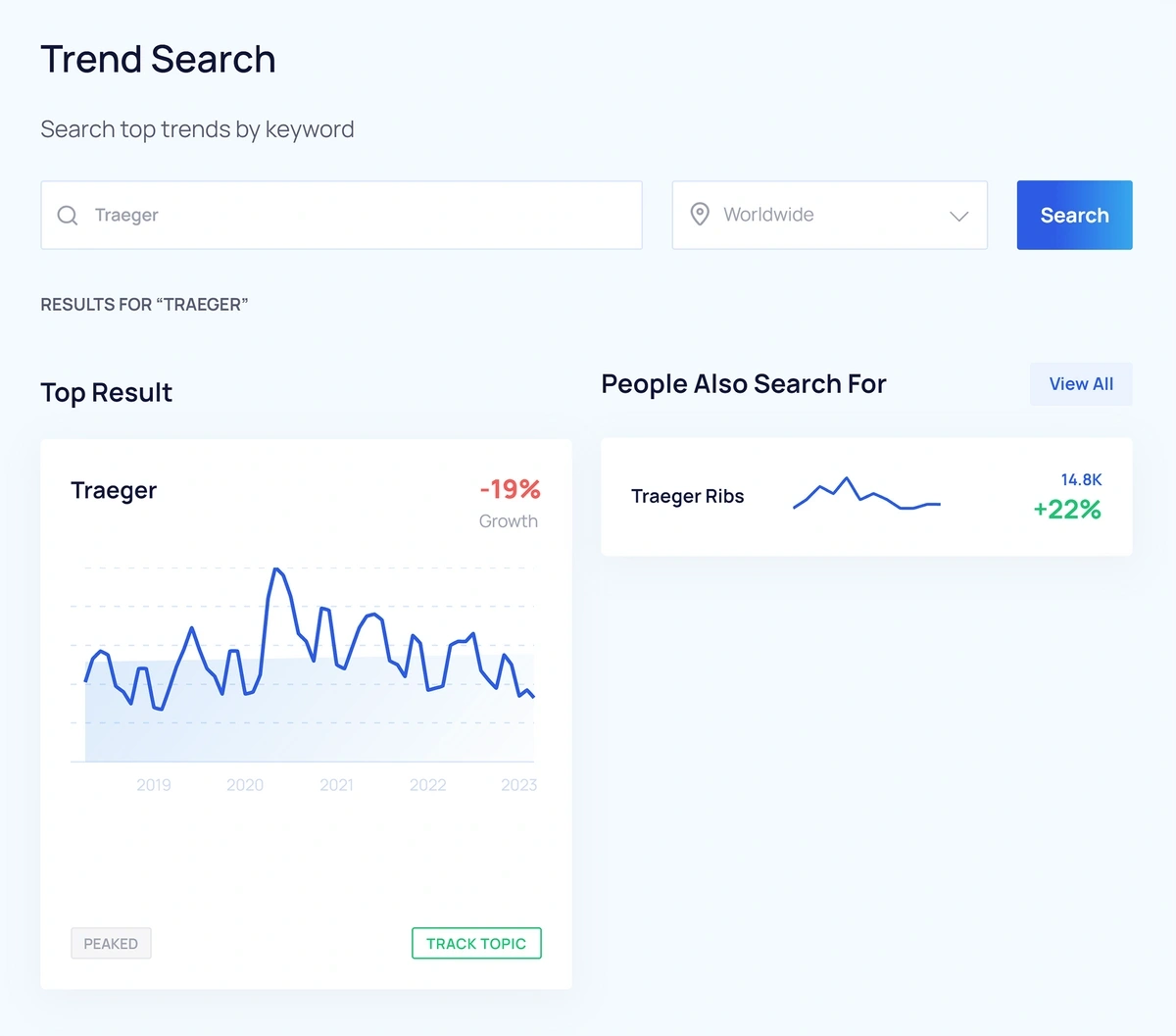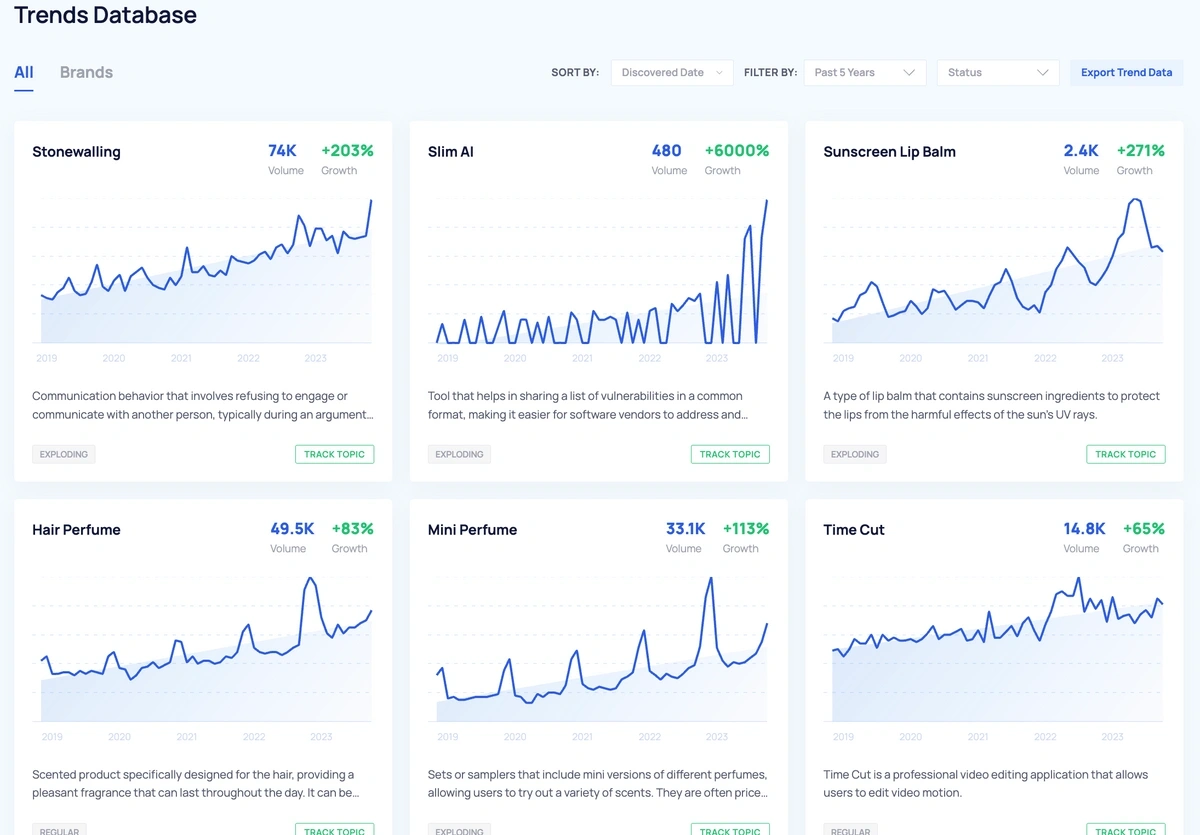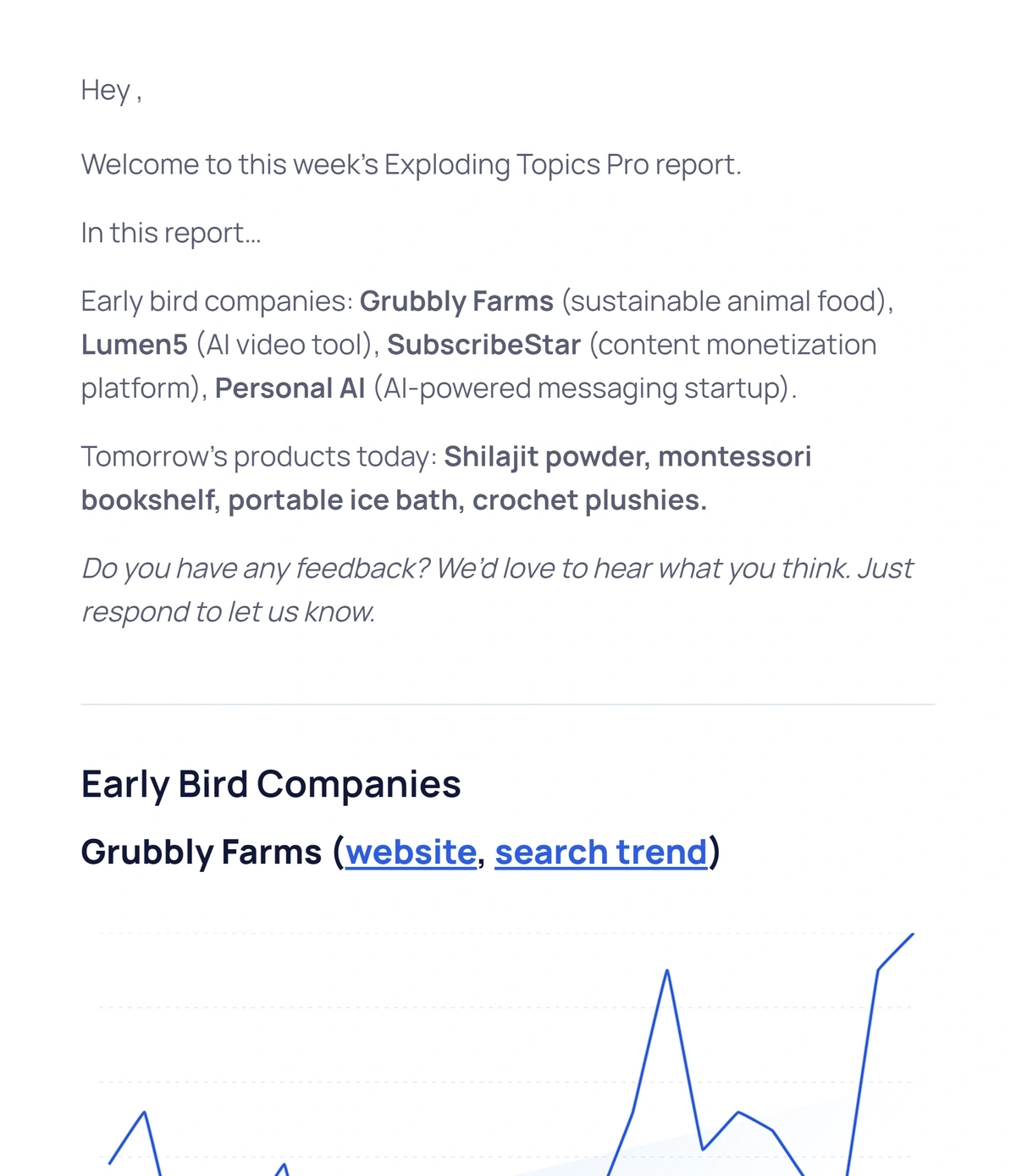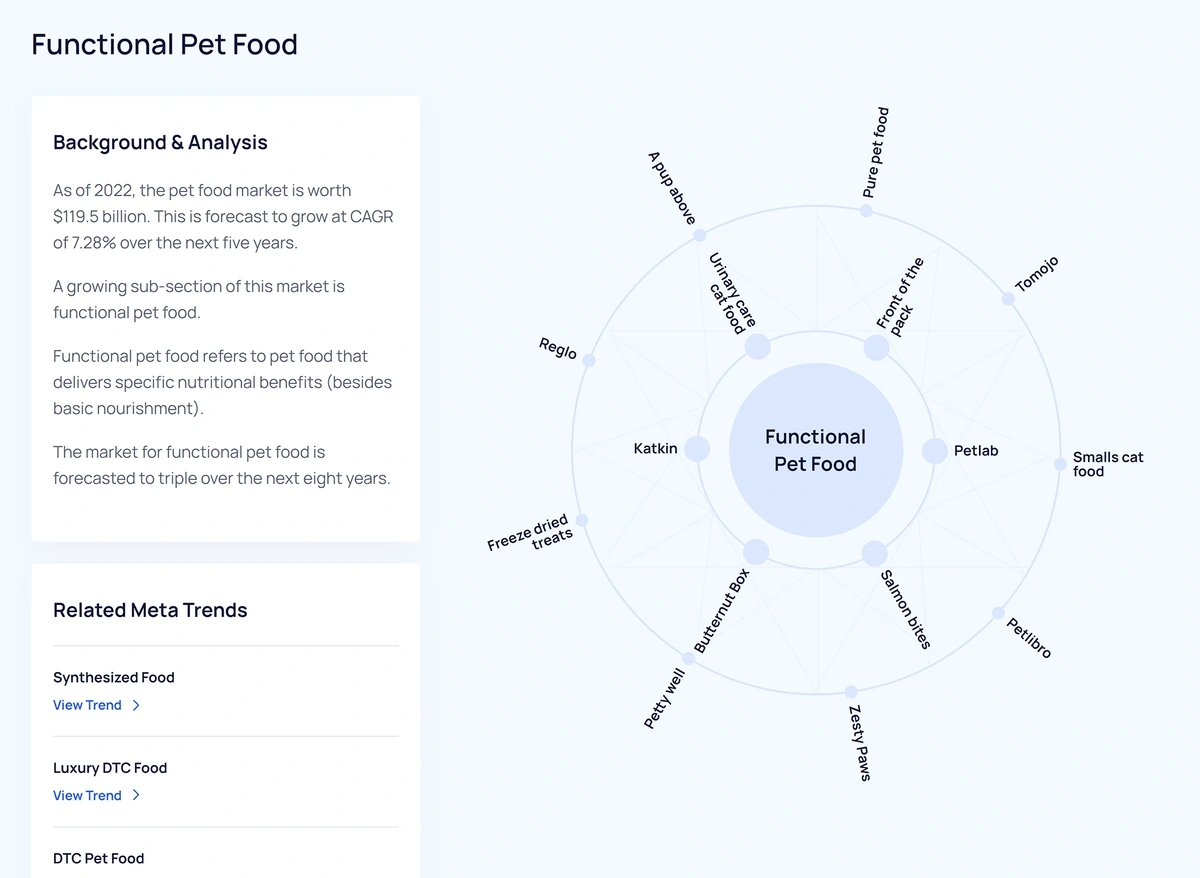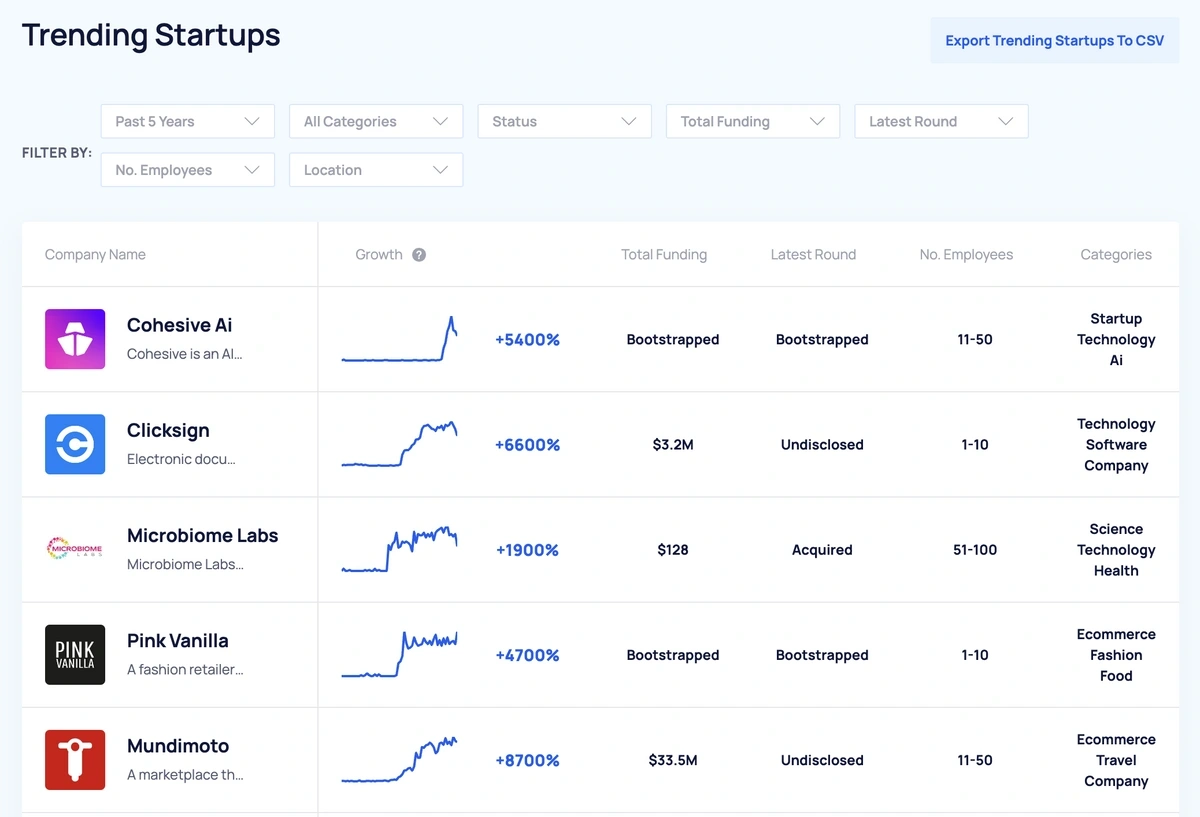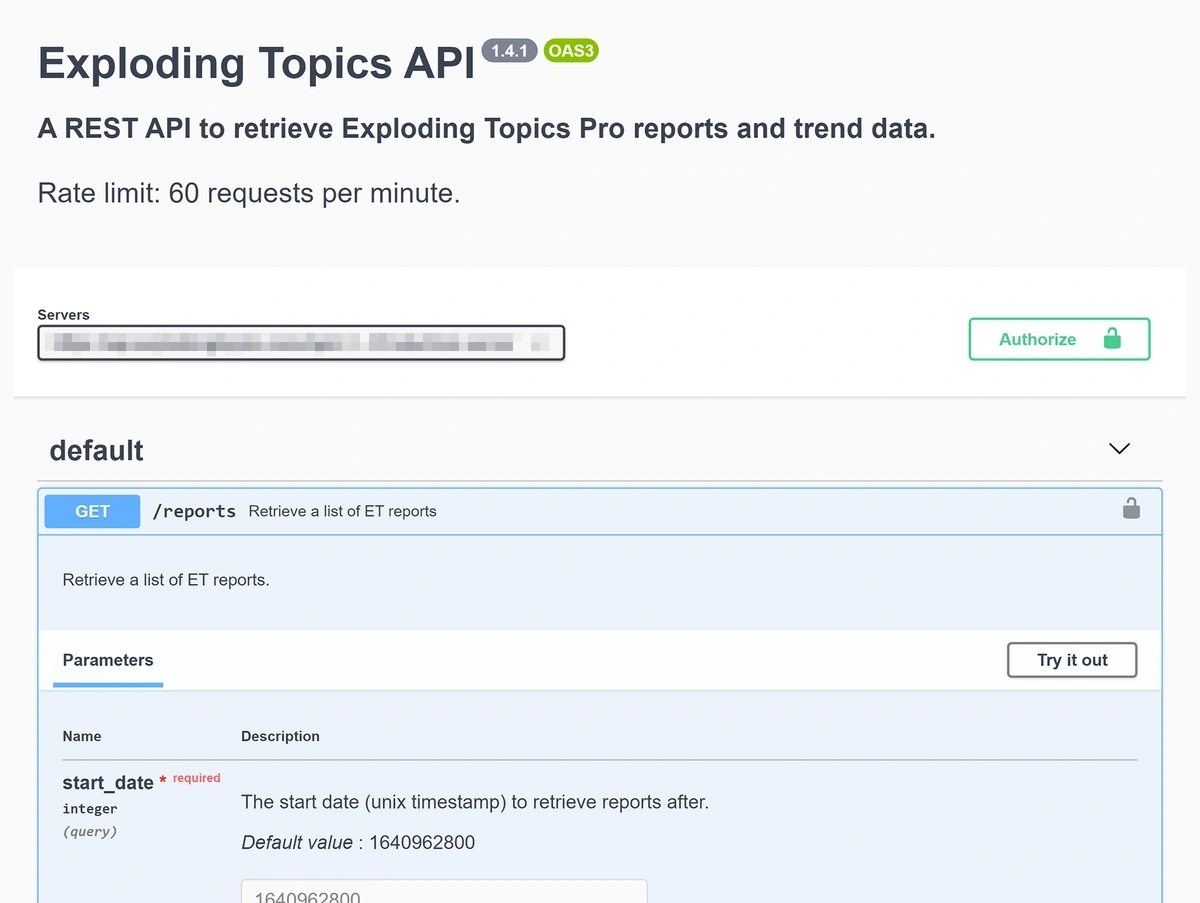Get Advanced Insights on Any Topic
Discover Trends 12+ Months Before Everyone Else
How We Find Trends Before They Take Off
Exploding Topics’ advanced algorithm monitors millions of unstructured data points to spot trends early on.

Features
Keyword Research
Performance Tracking
Competitor Intelligence
Fix Your Site’s SEO Issues in 30 Seconds
Find technical issues blocking search visibility. Get prioritized, actionable fixes in seconds.
Powered by data from
How to Use Google Trends for Market Research (2024)
Whether you’re starting a business or launching a product, conducting market research is critical.
That’s why some companies spend millions of dollars on market research every year.
The good news?
You don’t have to spend a fortune on market research. In fact, with Google Trends, you can do it for free.
In this piece, you’ll learn 7 practical ways to use Google Trends for market research.
1. Analyze Competitors
What is the search growth related to competitor brands?
You can use Google Trends to compare the search growth of your competitor brands or products. You can even get an idea of what products are trending through related queries and topics.
For example, here are some of those pet supply companies from before.
You can see competitor products that are generating interest.
2. Research Consumer Sentiment
How do people feel about a particular topic, product, or brand? One of the cool things about Google Trends is that you can analyze queries that measure sentiment.
For example, you can search “should I buy a Tesla” and “is Tesla worth the money.” Or maybe “Tesla competitors” would help provide insight into future market share.
You can also analyze general market confidence.
Here are the “Interest Rate” results, which may indicate a heightened concern about the rising rates.
“Should I sell my house,” can suggest sentiment about housing prices.
And “debt consolidation” might suggest growing financial concerns.
3. Explore Trending Topics
You can use Google Trends to check out which topics are trending. Select a category you’re interested in and let Google show you trending topics.
For example, let’s say you’re researching the beauty industry. You can check out the “Beauty & Fitness” category and view the trend growth at the category level over time (and by region).
Some categories have related subcategories. For example, from “Beauty & Fitness,” you can drill down to the “Cosmetic Procedures” category.
Now, check out the related topics and queries. It looks noisy, but you can already notice interesting trending topics.
By default, the filters at the top of the “Search Topics” and “Search Queries” show “Rising” items. You can change it to “Top” to see items with more consistent growth.
Exploring a topic will lead to even more related topics and queries.
Once you have some topics, you can analyze their search growth. For example, here is a comparison between two beauty brands, “Sol de Janeiro” and “Rare Beauty.”
You can check out the breakdown by region.
You can even see how it trends across metro areas and cities.
And find even more queries.
4. Analyze Product Demand
How does search growth reflect consumer demand?
With Google Trends you can hone in on trending products and analyze their demand over time.
For example, here’s a trending beauty product: “Rare Beauty Liquid Touch Weightless Foundation”.
You can see a recent uptick in search growth. Try changing the date range to look at the last 12 months.
You can also see which regions are driving growth.
Let’s try another example.
Let’s say you own a pet products store, and you’ve started to hear more and more about dog probiotics. You can validate product interest with Google Trends.
In the last five years, interest has been trending upward, with the highest growth in Oregon, Arizona, and Colorado.
In the queries and topics sections, you can see the same brands appearing.
You can explore these related topics and queries to find more products or brands to analyze.
5. Monitor Geographical Trends
You can monitor geographical trends to see where demand is coming from.
Let’s search for “Protein Ice Cream.” To see where it’s trending.
Here is another example: “Fly Fishing.”
You can drill down to the metro area and city to get a more granular picture.
6. Observe Seasonal Trends
Google Trends is great at catching seasonal patterns in search growth.
For example, let's examine the seasonal search growth of “running shoes.”
The term peaks in March, April, and May - right in the Spring, the ideal season for running.
Where the weather is more moderate, the spikes are less drastic. For example, in Nebraska, where the winters are harsh, there is a more pronounced spike in demand during the spring.
Hawaii has less seasonal fluctuation.
Here are the results for “Traeger,” a popular grill. Notice that search growth consistently spikes around big holiday meals like Thanksgiving and before the 4th of July.
7. Enhance Google Trends
Google Trends offers many great ways to perform market research. Considering it’s free, it’s a powerful tool that leverages the most extensive search database on earth.
But you can take your market research even further by combining it with Exploding Topics.
Exploding Topics scans and crawls millions of websites, social media feeds, ecommerce searches, and conversations to surface growing trends. Then, we vet trends through our team of experts.
Like Google Trends, Exploding Topics can help you perform deep market research.
(But we take it a few steps further.)
Market Research Without the Leg Work
With Exploding Topics, we show you where the demand is. Head over to our Trend Database, select a category, and see what’s “Exploding” or “Peaked.”
Pro members get access to curated reports and weekly newsletters with commentary from our trend experts.
Deeper Trend Analysis with Meta Trends
With Exploding Topics Pro, you get data-packed deep dives into the macro trends driving product growth.
Discover The Rising Stars
Investors and market researchers can explore our library of “Trending Startups,” where you can filter by category, see funding information, and track interest over time.
More Control With a Flexible API
Google Trends doesn’t have an API. But we have you covered. Use our flexible REST API to retrieve topic data we find in real-time.
- Build your own application to get topic growth volume by the hour or minute.
- Quickly share reports and Exploding Topic findings with your team members
- Enable workflows or notifications when we find an “Exploding” topic.
Conclusion
Market Research can be challenging if you don’t have the right tools to do it. Google Trends is a great free tool that is easy to use and can quickly lead you in the right direction.
When used with Exploding Topics, you can take your Market Research a step further - discovering more trends and more insights from more sources.
So, get out there and start discovering.
Stop Guessing, Start Growing 🚀
Use real-time topic data to create content that resonates and brings results.
Exploding Topics is owned by Semrush. Our mission is to provide accurate data and expert insights on emerging trends. Unless otherwise noted, this page’s content was written by either an employee or a paid contractor of Semrush Inc.
Share
Newsletter Signup
By clicking “Subscribe” you agree to Semrush Privacy Policy and consent to Semrush using your contact data for newsletter purposes
Written By


Josh is the Co-Founder and CTO of Exploding Topics. Josh has led Exploding Topics product development from the first line of co... Read more




